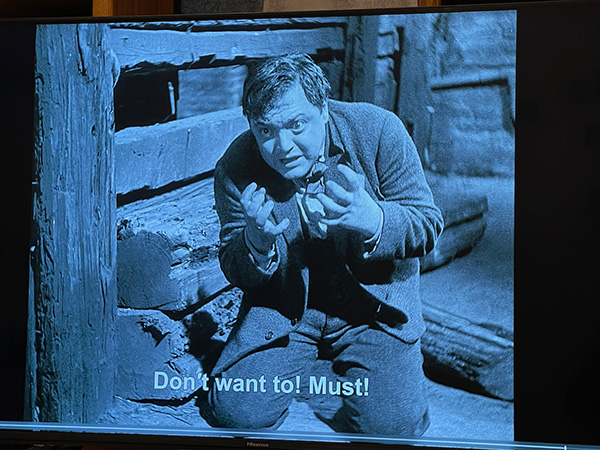M
Directed by Fritz Lang, 1931
 Had somehow never seen this film. I knew it was about a serial killer of children, and that it was German. I had forgotten it was made in 1931 as the Nazis were coming to power. It doesn’t deal with Nazis, but apparently the Nazis had the power to stop it from being made before being convinced by Lang of the content of the story.
Had somehow never seen this film. I knew it was about a serial killer of children, and that it was German. I had forgotten it was made in 1931 as the Nazis were coming to power. It doesn’t deal with Nazis, but apparently the Nazis had the power to stop it from being made before being convinced by Lang of the content of the story.
Not surprising that it regularly appears on the best films of all time lists. Working on the edge of filmmaking technology in sound, lighting, editing, and camera work, the movie is still so impressive and also remains a remarkable document of the era.
After establishing that the story is about the hunt for a killer of children, the movie spends most of the second act observing how the police’s obsessive search terrorizes the citizens of Berlin both by failing to find their man and by intruding on every aspect of public life. The criminal class decides that they must make it their business to find the killer to get the police to back off the constant surveillance and raids. Loved the scene that cut back and forth between the city leaders and the criminal bosses holding simultaneous strategy sessions in extremely smoked-filled rooms.

The ending was even more surprising. Instead of simply killing murderer once he is caught, the criminals and poor of the city hold an impromptu trial, complete with a defense attorney, to legitimize their execution of him. Although Lorre’s character insists that he cannot help himself, they argue that the reason they must kill him is because he will use the insanity plea to escape punishment and kill again.